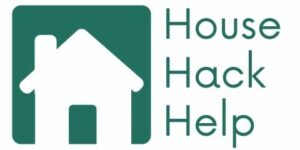How Long Do You Have to Live in a House Hack?
If you finance your house hack with an owner-occupied mortgage, you will usually need to live in the property for at least one year before you can rent out the entire thing.
Mortgage Owner Occupancy Requirements
House hacking is a particularly powerful investing strategy because it allows you to take advantage of owner-occupied financing, and most lenders require that recipients of these mortgages live in the property for the first 12 months.
Owner-occupied loans tend to come with low interest rates and down payments, which is true for both conventional mortgages and FHA-backed loans.
Something like a Fannie Mae conventional mortgage may require as little as 5% down, and a fixed-rate FHA loan offers qualified applicants a down payment as low as 3.5%.
Lenders of both conventional mortgages and FHA loans usually require you to wait 12 months before renting out the entire property, during which time you can still rent out spare rooms and extra units.

Fortunately, mortgage lenders will rarely prohibit you from renting out the property after a certain period of time. The limitations are only in place to ensure that the property is in fact owner-occupied for the first year after purchase.
If you don’t live in the home as agreed, or you move out before a year goes by, you could be accused of mortgage fraud, more specifically known as occupancy fraud.
If you finance a property with an FHA loan, you must occupy the home as your primary residence within 60 days and live in the property for the majority of one year after purchase. These restrictions are enacted to ensure that you are not an investor at the time of purchase, and violating these terms could lead to an investigation by the FHA.
Condo or Homeowner Association Restrictions
Some homeowners associations will set their own requirements regarding how long you must live in the property before renting it out.
If you are planning to house hack a condo or your property is located in an area that is governed by a homeowners association (HOA), be sure to check your association’s declaration & bylaws and any applicable rules & regulations before closing.
HOA requirements might match or exceed those set by your mortgage lender, and some associations may mandate that you continue to live in the property as long as you are renting out extra space.
Keep in mind that HOA rules are subject to change, so make sure you keep up with the most up to date rules.
Don’t Break the Rules
Since mortgage fraud is a federal crime, violating mortgage owner occupancy requirements could lead to financial penalties, foreclosure, and even imprisonment.
Violating HOA and condo association restrictions can also lead to hefty fines, and in some cases, the HOA can put a lien on your home.
That said, it is essential that you abide by all regulations and restrictions set by your mortgage lender and condo or homeowner association.
If you agree to purchase and occupy a property as your primary residence and don’t meet all stipulated requirements, the consequences can quickly amount to more than it’s worth.
FAQs
Can I rent out my house after 1 year with an owner-occupied loan?
Generally, yes. If you finance your house with an owner-occupied mortgage, you will usually need to live in the property for at least one year before you can rent out the entire thing.
How long do you have to live in a house before selling it?
There is no minimum time limit on how long you must live in a property before selling it, although most lenders require that you occupy the home for at least one year after purchase.
You may face a pre-payment penalty for paying off the mortgage early, so check with your lender to understand the exact consequences of selling your property.
What is mortgage fraud?
Mortgage fraud is a federal crime. Mortgage fraud occurs when someone lies on a mortgage application about his or her intention to occupy the property as a primary residence.
What are the consequences of mortgage fraud?
The consequences of mortgage fraud can include financial penalties, raised interest rates, foreclosure, or imprisonment.
What is an HOA?
A homeowners association (HOA) is a group that governs and enforces rules for property owners in a certain area. HOAs are common in condo and townhome complexes, and some single-family home neighborhoods. They may place significant restrictions against renting out a unit within the development.
Will an HOA fine me for renting out my property?
It depends on the HOA’s rules and regulations. Some HOAs have no problem with homeowners renting out their properties, while others have strict rules against it.
Before you house hack a property in an HOA community, be sure to check your association’s declaration & bylaws and any applicable rules & regulations.
What is occupancy fraud?
Occupancy fraud is when someone lies on their mortgage application about their intention to occupy the property as a primary residence.
For example, if you finance a property with an FHA loan, you must occupy the home as your primary residence within 60 days and live in the property for the majority of one year after purchase.
How can I avoid occupancy fraud?
The best way to avoid occupancy fraud is to be honest on your mortgage application about your plans for the property. If you are caught lying about your intention to occupy the property, you could face significant consequences.
What is a primary residence?
A primary residence is a home that you live in full-time. You can only have one primary residence at a given time.
Can I buy a house with an FHA loan if I plan on renting out rooms?
Yes, you can buy a house with an FHA loan and rent out rooms, so long as you simultaneously live in the property as your primary residence for the required occupancy period.
This website, and any communication stemming from it, should not be taken as financial or legal advice for your specific situation. Consult directly with a licensed financial professional should you need investment advice and consult directly with a licensed attorney directly should you need legal advice. Assume all links are affiliate links. I am an Amazon affiliate.


